Blists Hill is one of the industrial sites operated by the Ironbridge Gorge Museum Trust and today works as an open-air museum.
It is located in the Madeley area of Telford, Shropshire, England. During the 18th and 19th the whole site was enliven by the workers in mines for blast furnaces and coal, iron, and fire clay of the Madeley Wood Company.
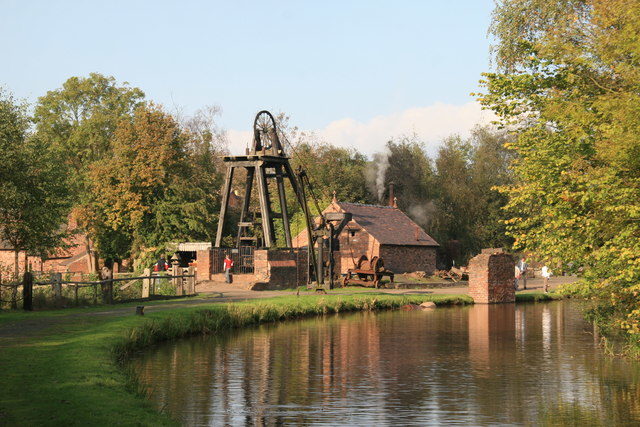
There were also brick and tile works. The Blists Hill was located on canal inclined plane – Hay Inclined which was connected to the Shropshire Canal that was built to supply coal and which adjoined the River Severn at Coalbrookdale. The Shropshire Canal was 316 yard long Wrockwardine Wood inclined plane to its summit level. Through the Hay inclined plane and the Shropshire Canal, the coal from Blists Hill was transported to Coalport.
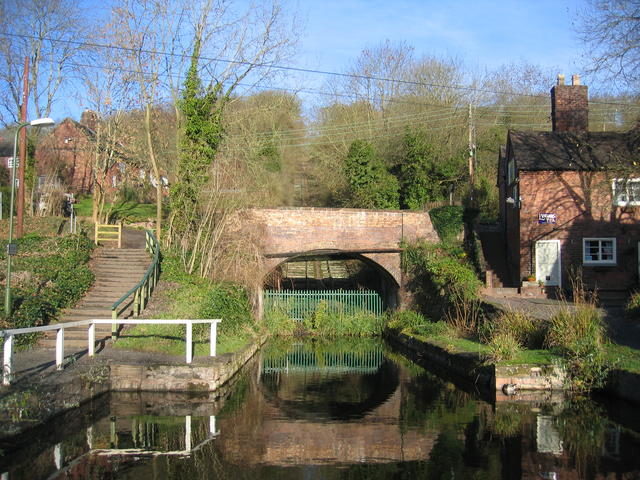
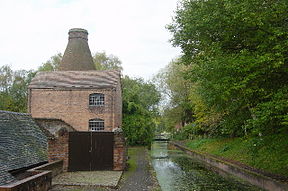
In 1973 the whole industrial complex of the Blists Hill Victorian Town has been opened and is known as Blists Hill Open Air Museum.
The buildings of the museum site are divided into three different categories: the brickworks buildings that were part of the industrial complex; buildings that simply represent a generic type (e.g. the sweet shop); replicas of buildings standing elsewhere but adapted to the site; and original ones that have been relocated to the museum.
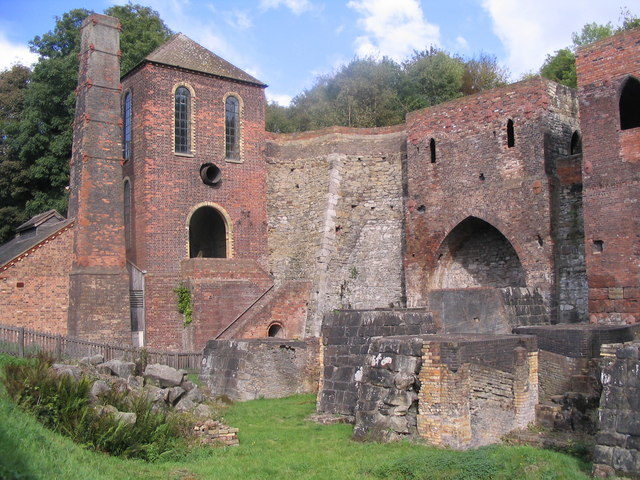
The employees at the Blists Hill Open Air Museum are trained to perform the activity that had taken place in history.
They are adequately dressed and show the visitors how a particular object functioned in the past.
They refer to the Victorians as “they” rather than as “we” so that the audience can have a clearer perspective on the differences between the technology now and then.
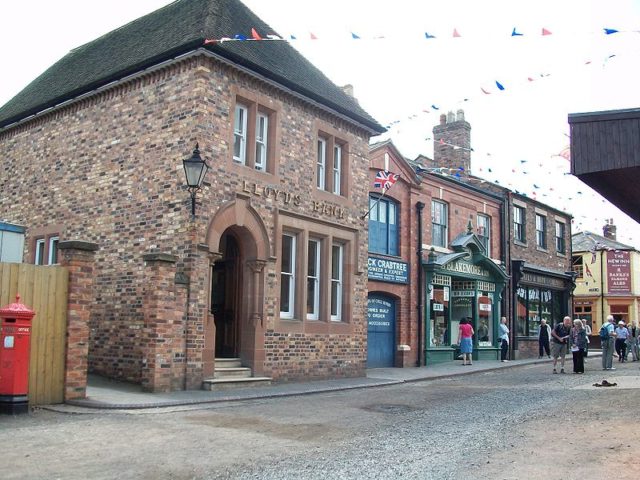
At the entrance of the museum site, there is a modelled bank on the still existing Lloyds Bank where the visitors can make an exchange of currency – a modern coin for a token one that that represents the pre-decimal farthings, halfpennies, pennies, threepenny bits and sixpences, at an exchange rate of 40 new pence to 1 old penny.
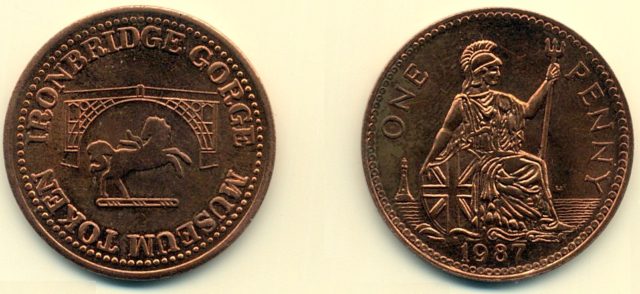
The remains of a blowing engine and the pig iron produced between 1832 and 1911 by the Madeley Wood Company blast furnaces have been conserved and installed in one of the houses at the museum site. There are also a wrought iron works and two beam engines.
There are also replicas of a corrugated iron tin tabernacle, (St Chad’s Mission Church from Lodge Bank), a squatter cottage (from Dawley), and a toll house (designed by Telford for the Holyhead Road at Shelton).
Blists Hill has been used as a filming location for several movies such as the movie “Feast of July”, the children’s television series “Blue Peter”, an episode of “Antiques Roadshow”, and a few others. The museum is worth a visit.
